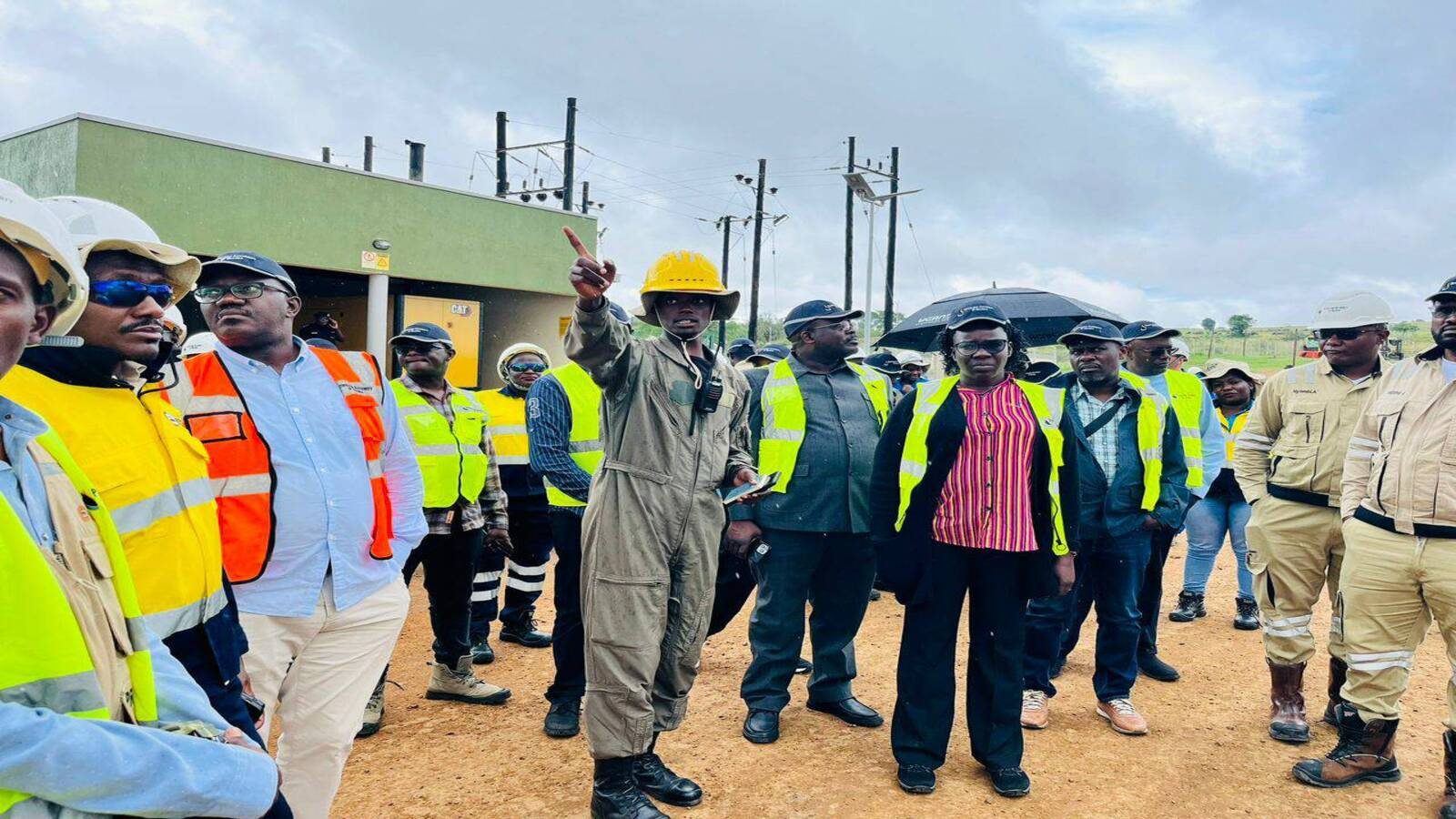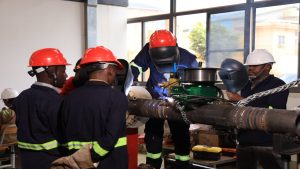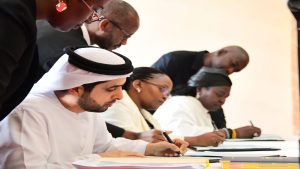Share
The most influential nations for the oil and gas industry worldwide have invited Uganda’s ambassadors back to see the oil projects so they can represent the country’s interests from a better-informed stance.
The diplomats have returned to Beijing, China, Paris, France, the United Arab Emirates (UAE), and Tanzania, according to a Kazi-njema radio reporter covering the diplomats’ visit organized by the Petroleum Authority of Uganda (PAU).

Mr. Ali Ssekatawa, Director of Legal and Corporate Affairs at PAU, stated in an interview conducted at Well Pad 3 of the Kingfisher oil field in Kikuube area that the action was taken in response to evidence that the majority of those who unfairly disparage Uganda’s oil projects are foreigners
He stated, “We wanted the ambassadors to see the most recent changes taking place and to recognize their nation’s dedication to preserving social and environmental aspects for the benefit of Ugandans.”
The most controversial portion of the East African Crude Oil Pipeline (EACOP) project is being hosted by Tanzania; TotalEnergies, a major stakeholder in both the Tilenga and EACOP projects, is based in France; the United Arab Emirates (UAE) is willingly funding the oil refinery project; and Offshore Oil Corporation (CNOOC), a Chinese company, is licensed to develop the Kingfisher oil project.

Industries
Mr. Ssekatawa responded that it affects the identification of possible oil project funders when asked why they should be concerned about what he called misleading information about the oil projects by feigners
However, he claimed that Ugandans have valued and fully supported the project as a result of the government’s ongoing efforts to disseminate information about the programs.
Given that sabotage affects more than 45 million Ugandans, the director invited some of the country’s citizens, whom he described as funded saboteurs, to take up this initiative on their own.
He questioned why, with over a million pipelines in western nations, anybody should try to sabotage the EACOP.
Even now, for instance, new licenses are being granted in America and Europe. Therefore, we must continue to extract our oil, Mr. Ssekatawa continued.
Proponents of StopEACOP have accused Ugandan oil projects of damaging delicate habitats like Lake Victoria.
Citing purported environmental harm, the European Union (EU) also denied Uganda’s oil production.
Nonetheless, Uganda’s line of technocrats denies that the environment would be ruined.
Teams from each of Uganda’s embassies in China, the United Arab Emirates, Tanzania, France, and France were led by ambassadors to China, Tanzania, and France, respectively, by H.E. Judith Nsababera, H.E. Zaake Kibedi, and Tanzania, by H.E. Fred Mwesigye.
They went to the Tilenga Oil project in the regions of Buliisa and Nwoya after visiting the Kingfisher rig at work, Kabaleega International Airport in the Kabaleega Industrial Park (KIP), and the Kingfisher Feeder Pipeline works, Pump Station 1, which is the EACOP terminal.
H.E. Kibedi expressed optimism at Kabaleega International Airport that the facility may support Ugandan exports to Dubai and other nations in order to boost the country’s economy.
When they visited the Kingfisher Feeder Pipeline construction site, they were informed that 85% of the pipework was finished, and they saw amazing development there.
They visited the Kingfisher waste management facility at the top of Buhuka Valley before going there, where they were informed that all waste treatment options were taken into account for the sustainable exploitation of Uganda’s oil resources.
Everything was set up to manage the oil waste, according to Lt. Abert Kato, Deputy Project Manager of the Kingfisher Waste Management Facility under the National Enterprises Corporation (NEC), Luwero Industries Limited.
He reassured the diplomats that all doubts had been allayed and the final technical equipment had been imported.

The visit of Ugandan diplomats from these nations, according to the head of the ministry of foreign affairs in Uganda, was essential.
The ambassadors received assurances that Uganda would unquestionably begin producing oil by 2025.
According to the PAU, all necessary measures had been done to enable production.









